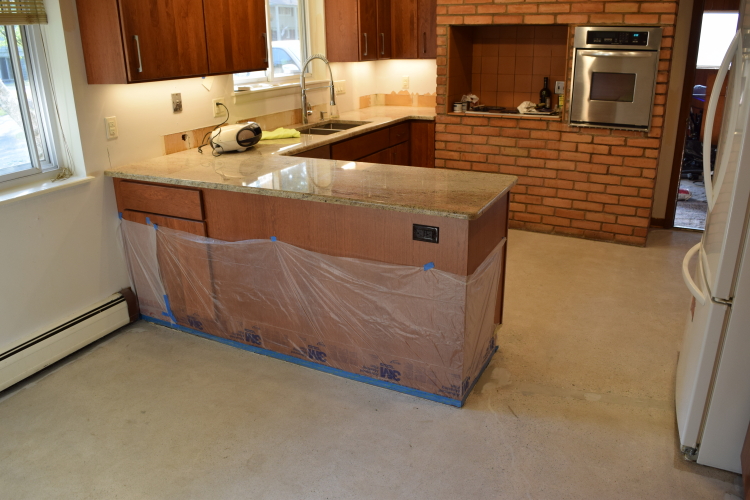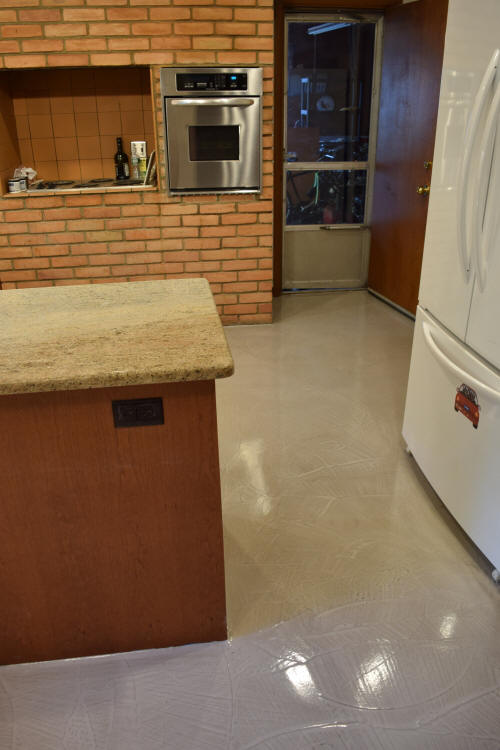Lukacs Residence
This project is the resurfacing of a concrete kitchen floor in Farmington Hills. Photo above left shows the paper backing from vinyl tile that was removed and the black, cutback adhesive beneath it. Above right is the bare concrete after grinding. There is a large concrete patch and long crack in the floor left from the removal of an old gas line.
We repaired the crack, leveled the existing patch and then applied a "crack isolation membrane" - that is the white material in photo above left - so that any movement in this area would not reflect through to the top of the resurfaced cement floor. Above right shows the gray cement overlay we used to resurface the floor and cover those repairs.
Above are more photos of the floor after installing 2 more thin layers - "micro-toppings" - of gray cement and then sanding it smooth. Above left, you can see the "accenting" from the trowel marks in the cement. The photo above right shows the finished cement overlay system after applying two coats of water-based clear epoxy sealer.
The next two photos (above and below) show the kitchen floor before and after the overlay, from another perspective. One important note: this decorative concrete overlay was not acid-stained or dyed, like most cement overlays. The 3 thin layers of cement in this overlay system were simply mixed with slightly different tones of gray and thinly overlaid upon each other.
The entire cement overlay is 3/16" thick. Nevertheless, it is extremely durable because the polymer in the cement overlay product provides great tensile strength and the epoxy sealer gives the surface of the overlay an even harder finish. The simple gray color of the overlay was chosen to complement the new granite countertops and maintain a "natural look".












